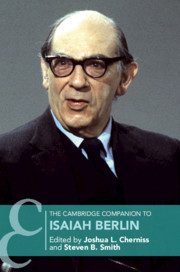When I first came to Oxford, Sir Isaiah Berlin was 60 and a light unto the nations. I was a 29-year-old budding writer. I had a letter of reference. I telephoned, received an invitation to Headington House, showed up, and the luminary himself opened the door. As I took off my coat Berlin boomed, “Would you like to live forever?” It was very un-British of him, very Dostoevsky.
Astonished, but knowing I was being tested, I replied: yes, but only if both the head and the body are in good order, and only if those dearest to me would live forever too. Isaiah put his arm around my shoulder and said, “Welcome to my clan.” He later added that he would really like to live forever, not because it was so good around here, certainly not, but because it is incessantly interesting.
In another conversation, Isaiah gifted me his distinction between an intellectual and an “intelligent,” member of the intelligentsia. The intellectual – mostly a western term – is a person comfortable with the fact that there are more questions in the world than answers. The intelligent – Russian, Slav, Jewish – is absolutely sure that he must tirelessly seek an answer to each question. This observation was no less important to me than the more famous (and partially overlapping) distinction between fox and hedgehog. In my mind, Isaiah Berlin was a full-fledged intellectual in the upstairs of his personality, and an Eastern European intelligent on the ground floor. This is why he so thoroughly understood both types.
Unlike many thinkers of the nineteenth and twentieth centuries, and perhaps akin to most eighteenth-century philosophes, Isaiah Berlin did not philosophize in a tight-lipped, teeth-grinding sort of way. He felt no need to pour his wrath onto others or onto the existing order, but meted out his ideas calmly, at times with a certain smile. A fox studying hedgehogs, at home in philosophy, poetry, history, and politics, he loved gossip, knew how to keep his distance, and always remained engaged. His sarcasm was biting, sometimes hurtful. But he never embarked on an obsessive crusade. His taste in ideas, like his taste in people, was diverse. But diversity, for Isaiah, never meant moral or aesthetic relativism.
He remained deeply suspicious of anyone pretending to teach us once and for all what is the good, and insisting on opening our eyes if we fail to choose it. I learned from him that the good is tricky to define, but anyone can sense evil. Truth is slippery, but even a child knows that a lie is a lie. Berlin also taught me that one could be national without being nationalist, and be patriotic without loathing or condescension for the patriotism of others. You can be a Zionist without ignoring Palestinian justice. There is a line between human compassion and sweeping “Christian” forgiveness. In politics, Thou Shalt Not Romanticize.
Then there was his understanding that the tragic and the comic are not two planets, as they teach us at school, but two windows on the same world. This insight, I think, came from Berlin’s Jewish and Eastern European roots. In an age of utopias and dystopias, he subverted both. He was a skeptic and, unusually for skeptics, an optimist. A sober judge of mankind and, unusually for sober judges, a man of great joie de vivre. He not only insisted on personal freedom of choice, but redefined it; not only redefined it, but enjoyed it tremendously.
Oxford usually calmed down his Jewish–Slavic storminess, and covered it with the gown of amused skepticism, light-handedness, irony, and caution. He was particularly cautious about what he loved most: ideas. Michael Ignatieff quotes Berlin’s erstwhile student Larry Siedentop: “He liked to venture out into the Romantic irrational by day, but always returned to the Enlightenment at nightfall.”Footnote 1 This is marvelous. Had Isaiah Berlin lived here in Israel in our times, he would have advised us to steer clear of Jerusalem, of Jerusalemite ideas. Tel Aviv, kibbutz, synagogue, yes. Holy hubs and utter convictions, no.
Finally, Berlin’s use of Kant’s “crooked timber of humanity” speaks directly to the art of storytelling. If human nature could be chiseled or rectified, not a single novel would ever be written. Our natural crookedness is not only the seed of liberty, but also the sap of literature.

